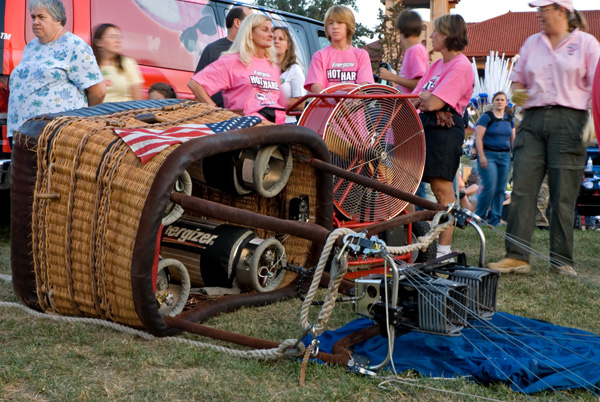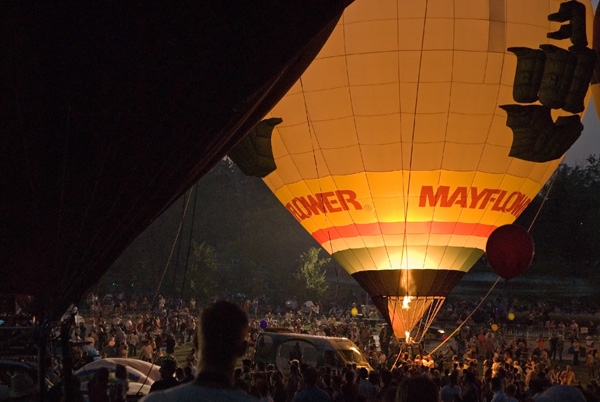Recovered from the Wayback Machine.
It’s funny, but in all the discussions on gatekeepers in weblogging, an underlying assumption is that it is the high profile webloggers who fill this role. However, gatekeepers exist in all layers of this statusphere, and one is just likely to be on the outside looking in within the small groups, as within the large.
I went looking for a definition of what is gatekeeping, and I found an old post of Jonathon Delacour on the subject. He got the term from Dorothea Salo based on a role playing by women and men, where the man pretends incompetence to get out of tasks, and the woman shuts the man out from the task and then complains about lack of help.
This is based on the origination of the term ‘gatekeeping’, by Kurt Lewin, …which he used to describe a wife or mother as the person who decides which foods end up on the family’s dinner table. David Manning White is the one who first extended this concept to journalism, where the gatekeeper is the person who decides which information enters the system, and which information does not.
If you think on it, we’re all gatekeepers. I read dozens of stories a day, which I don’t pass on to my readers. Why? For some stories it’s because I don’t find them interesting enough; others because I’m not in the mood to write a post; still others because I don’t want to send flow or because I’ve linked the person already so many times this week and don’t want to seem like a groupie.
It’s natural to be a gatekeeper. According to the University of Twente site, gatekeeping is inevitable:
The gatekeeper’s choices are a complex web of influences, preferences, motives and common values. Gatekeeping is inevitable and in some circumstances it can be useful. Gatekeeping can also be dangerous, since it can lead to an abuse of power by deciding what information to discard and what to let pass. Nevertheless, gatekeeping is often a routine, guided by some set of standard questions.
The focus is on the higher ranked folks because they can send, and withhold, significant amounts of flow. However, I’m finding that the high ranked sites tend to give and withhold flow more as a matter of obtaining more for themselves then to enforce a specific viewpoint or behavior. More, the nature of the flow that comes from these ’stronger’ sources is such to counter the long term effectiveness of the attention.
Think of attention in this environment as a river of water. If the river’s water level is normal, it flows naturally; providing both irrigation and transportation, as well as habitat for wildlife and recreation. Over time the water may increase gradually. When this happens, the banks and the river bed adjust and a smaller river becomes a slightly bigger one and the cycle continues.
If the water in the river is below normal levels, it puddles instead of flows: there’s not enough of it to cause the water to push beyond the contours of the river bed. The result is some areas will have water while others won’t. The areas that do have water, the water stagnates because there’s no circulation to keep it moving.
Worse, though, is a sudden huge increase in water. Nature may unleash a torrent of rain, or a dam may break and the water levels exceed what the river can handle. It breaks out of its banks and floods the countryside around it. If the water stays within the river banks, it’s more constrained, which causes it to rush even stronger, damaging the river bed. Wildlife habitat is destroyed, transportation halted, and everything that could be irrigated is now flooded.
Eventually the event that led to such abundance ceases, and the river returns to its normal flow, typically with negative consequences.
Ultimately, it’s not healthy for the river to get a sudden influx of water. The same can be said for webloggers and attention: it may be exciting during the event, but eventually the A lister turns his or her attention elsewhere, and the flood is gone is suddenly as it started. This type of attention is not a sustained attention: it comes, it flows, it’s gone.
If the higher ranked were to persist in giving attention, eventually the person may find themselves ‘elevated’, but this is rare (and usually of service to the A lister). No, I have found over the years that elevation really comes from attention downstream rather than up. The attention flows too strongly for it to stick with the A listers. However, though the rest of us don’t have as much flow to send, we send it again and again. We grow our audience from each other. Because of this, I question whether the A lister’s role as ‘gatekeeper’ is as insidious as broadly believed.
We fell in love with a graph with a long tail years ago, and we’re not willing to give up the idea that power rests with a few, and therefore granting of attention–or not–is no longer our responsibility. It’s their responsibility, we say to ourselves, whoever they are at the moment. The long tail is a myth, though, a form of reverse empowerment: the A list seem to have more power because we’ve given away our own.
To return a moment to my analogy, funny thing about rivers, because as large and as wild as they are we do have some control over them. We can hold the river back with a massive dam or we can manipulate its flow through a series of locks. I’ve watched the locks along the Mississippi and any one can’t make a difference, but dozens all along its path keep even this, one of the world’s mightiests rivers, tamed. Well, as tame as a river like the old Sip can be, until it stands up shrugging aside our small efforts.
We’re like those locks, controlling the flow of attention to each other; sometimes letting a little more flow through, sometimes shutting the gates because we’re peeved (or not in the mood, or it doesn’t serve our interests, or any of a hundred reasons).
We’re all gatekeepers, of one form or another.







